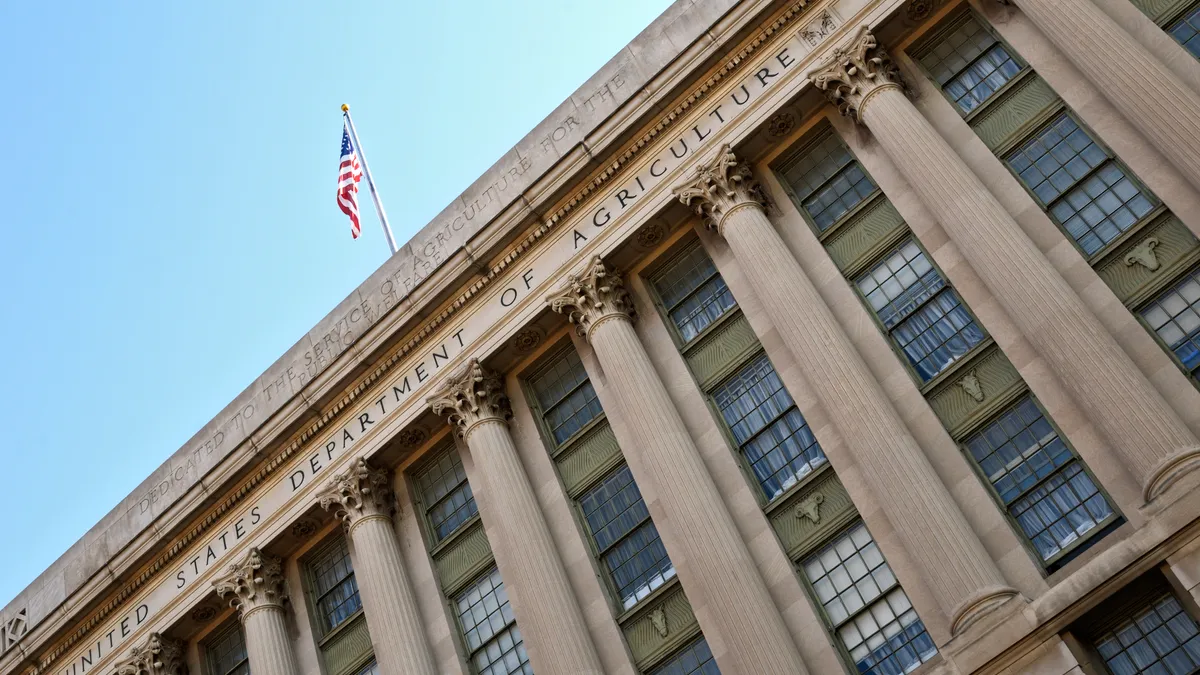Dive Brief:
- A federal court last week overturned a rule exempting genetically engineered plants from pre-market review, saying the U.S. Department of Agriculture has an obligation to regulate these technologies.
- The decision from the U.S. District Court for Northern California takes aim at a 2020 rule that allows genetically engineered plants to bypass certain pre-market reviews if the USDA determines the technology poses no environmental risks.
- Prior to the rule, the USDA reviewed genetically engineered plants before commercialization to ensure the technology did not risk contaminating other non-genetically modified crops.
Dive Insight:
The court's ruling reverses an effort by the Trump administration to overhaul regulation of biotechnology products with the goal of streamlining the review process to accelerate innovation in agriculture.
The changes meant that genetically modified crops would be subject to regulation if they're deemed to be "noxious weeds," which is determined based on traits from the plants' non-genetically modified counterparts. Genetically engineered plants could also bypass regulatory review if the edited traits could have been achieved through conventional breeding.
Food safety advocates say the substantial rise in genetically modified seeds should call for more regulation of these technologies. Farms apply weedkillers and other crop protection products to seeds that are built to withstand the chemicals; however, these pesticides can drift and destroy crops on nearby farms that may not have the same resistance.
Critics have also taken aim at the flexible nature of the regulatory review process, saying it’s essentially voluntary. Manufacturers have to request the USDA to review whether a new technology is exempt from regulation.
The revised process has expedited approval timing for genetically engineered plants down to about 41 days on average from submission, the USDA said, with the majority of clients being small and medium-sized businesses. However, critics, including some farm groups, say the rules lead to less oversight and that a lack of transparency could carry trade risks.
In 2021, groups including the Center for Food Safety and Center for Biological Diversity sued the USDA to reverse the rule. The court's decision is "a critical victory on behalf of farmers, the planet, and scientific integrity," George Kimbrell, legal director for the Center for Food Safety, said in a statement.
“A growing body of science shows that GE crops dramatically escalate toxic herbicide use, causing harm to farmers, rural communities, and biodiversity,” Dana Perls, program manager of plaintiff Food and Technology at Friends of the Earth, added in a statement. “USDA needs to urgently prioritize a high standard of oversight for GE organisms to evaluate real risks for people and the environment.”
In response to the ruling, APHIS said on its website that all regulatory status review responses, confirmation request responses, and active permits issued prior to Dec. 2 remain valid. The agency is “determining next steps and will provide additional guidance to stakeholders.”











